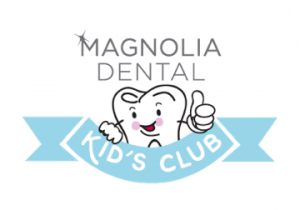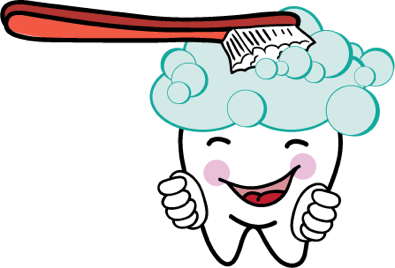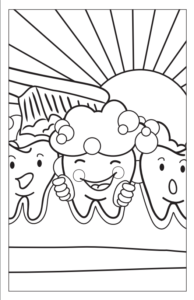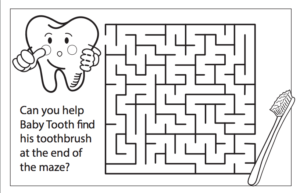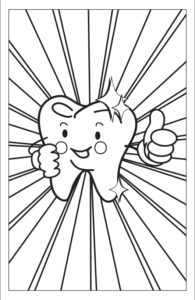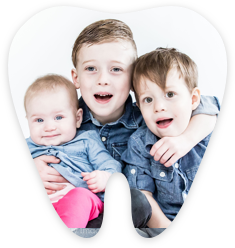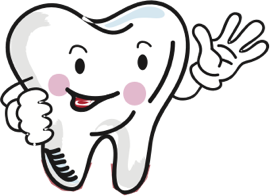1. Teeth Begin Before Birth
Tooth buds, the masses of tissue that eventually form into teeth, develop during pregnancy as early as the sixth week! By the time your baby is born, the tooth buds of the primary and some permanent teeth have developed.
2. Baby Teeth Matter
Baby teeth don’t just help your child chop their food! Primary teeth support jaw formation, speech development, and save space in the jaw to guide permanent teeth into place. A beautiful, healthy smile also helps a child build self-esteem.
3. Brushing Basics
The American Dental Association recommends that kids’ teeth – both primary and permanent – are brushed twice a day for two minutes at a time. For kids under the age of three, begin with a small amount of fluoride toothpaste (no more than the size of a grain of rice). Once a child is three years old, you can dispense a pea-sized amount of toothpaste to use for brushing. Finding ways to make brushing a fun part of a child’s routine through books or song can help avoid resistance towards this healthy lifelong habit.
4. Cavities Can Happen
Genes can play a role in whether or not your child is prone to cavities. Even with good brushing and flossing habits, cavities can happen. It is important to follow the advice of your dentist and not delay in treating cavities. If cavities are left untreated, the infection can cause damage to the permanent tooth underneath, or even lead to nutritional deficiencies if dental pain impacts the child’s ability to eat. Other serious complications can occur if left untreated. Books like Baby Tooth Gets A Cavity by Lauren Kelley can help a child prepare for a filling.
5. First Trip to the Dentist
At Magnolia Dental, we provide the best dental care possible in a loving environment for patients of every age. Our goal is to get kids excited about taking care of their teeth from their very first visit! Your child can see the dentist anytime after their teeth begin erupting, but make sure you book an appointment with our office before the age of 1.
